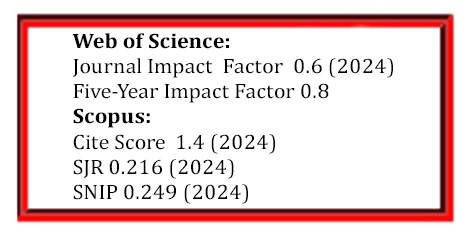Interaction of Alginate/Copper System on Cotton and Bamboo Fabrics: The Effect on Antimicrobial Activity and Thermophysiological Comfort Properties
DOI:
https://doi.org/10.5755/j01.ms.19.3.1217Keywords:
copper treatment, ultrasonic energy, antimicrobial testing, bamboo, cotton, thermophysiological comfortAbstract
Antimicrobialagent treated materials have been widely used clinically as medical devices and articles, in which the active substances, such as antimicrobial molecules, are present on or in the matrix of the surface of the devices and articles.This study aims to treat a selection of fabrics with alginate/copper, and then determine the treated fabrics’antimicrobial activity against two common Gram-positive and Gram-negative bacteria. It is also aimed to analyse and evaluate the thermophysiological properties of the treated fabrics. Cotton, organic cotton and bamboo woven fabrics were employed. The fabrics were applied in 1 %, 3 % and 5 %w/v copper solutions andsubsequentlyspecimens were subjected to 10 min and 20 min ultrasonic energy treatment. The results clearly demonstrated that the cotton and organic cotton fabrics were successfully treatedwith the alginate/copper and the treated fabrics showed considerable zone of inhibitions. The bamboo fabric did not appear to bond effectively with the copper alginate, andas the result,the fabrics did not display any improved bacterial protection against the chosen bacteria. In fact the bamboo fabric lost its natural antimicrobialproperties after the alginate and copper treatment.The thermophysiological comfort properties of the treated cotton fabrics changed significantly; on the other hand, the treated bamboo fabrics were not affected by the copper treatment.
Downloads
Published
Issue
Section
License
The copyrights for articles in this journal are retained by the author(s), with first publication rights granted to the journal. By virtue of their appearance in this open-access journal, articles are free to use with proper attribution in educational and other non-commercial settings.



